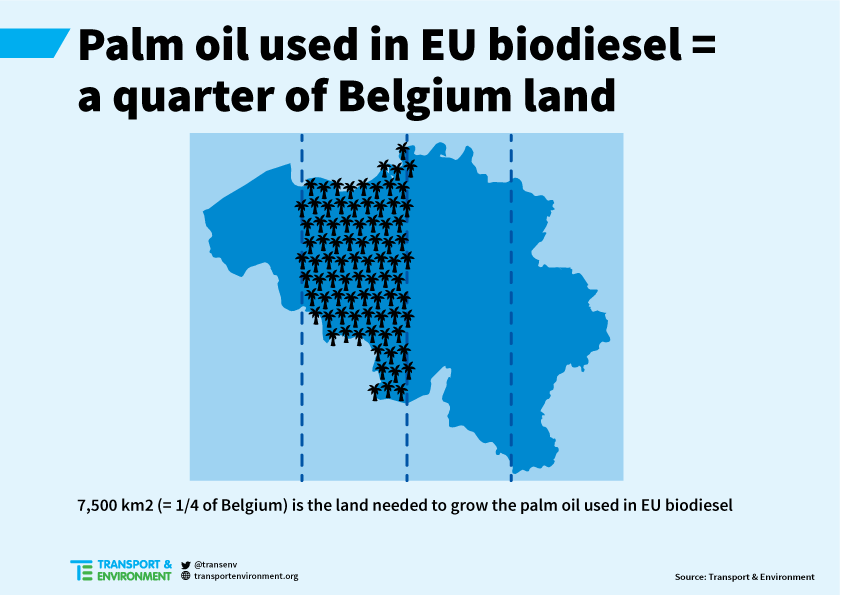
Interested in this kind of news?
Receive them directly in your inbox. Delivered once a week.
The tropical area needed to grow the 3.2 million tonnes of palm oil, representing 1.2% of EU road transport fuel use, is around one-quarter of Belgium.
An earlier analysis of a European Commission study revealed that, on average, biodiesel from virgin vegetable oil leads to around 80% higher emissions than fossil diesel. Palm-based biodiesel is the worst, causing three times as much emissions as fossil diesel because palm expansion drives deforestation and peatland drainage in South-East Asia, Latin America and Africa. Europe does not produce palm oil because palm trees need a tropical climate to grow in.
‘We now know why the industry is withholding these numbers, they show the ugly truth of Europe’s biofuel policy. It drives tropical deforestation, increases transport emissions, does nothing to help European farmers and does not improve our energy security. As if Dieselgate is not bad enough, we now have a Biodieselgate on top,’ said Jos Dings, T&E’s executive director.
Europe’s use of palm oil in diesel increased by a whopping 606% between 2010 and 2014. This explosion has fueled all of the 34% growth in biodiesel consumption in Europe in that period.
Palm oil used for non-energy purposes (for example, food, animal feed, cosmetics and soap) actually declined by one-third between 2010 and 2014. In 2014, 60% of Europe’s total palm oil consumption was used for energy purposes in transport, electricity generation and heating.
The European Commission is currently reviewing the Renewable Energy Directive (RED), which decides the future of the current 7% limit for first-generation biofuels after 2020, and sustainability criteria for all bioenergy including biofuels. Biofuels in Europe still count as carbon neutral (zero emissions) to meet member states’ climate goals. The EU executive body will publish a proposal on the use of alternative fuels for transport in the final quarter of this year.
Jos Dings concluded: ‘We should phase out first-generation biofuels after 2020. Moreover, we should end the folly whereby biofuels that harm the climate still count as zero-emission fuels towards our climate targets. If we do not end incentives for bad biofuels, the better ones will not stand a chance.’
Biodiesel made from virgin vegetable oil (also known as first-generation biofuels) is the most popular biofuel in the European market with a market share of three-quarters. Europe is the second largest consumer of palm oil in the world, after the US.


